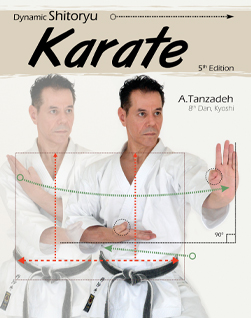Manzo Iwata – A Master of Precision, Tradition, and Budō Philosophy
岩田 万三
February 9, 1924 – June 4, 1993
Manzo Iwata was born on February 9, 1924, in Tokyo, Japan, into a family that emphasized culture, education, and discipline. From an early age, he developed a strong interest in martial arts, initially training in kendo and judo. His passion for traditional budō led him on a lifelong path of study and refinement. During his youth, Iwata also came under the tutelage of the legendary martial artist Seiko Fujita, the 14th-generation headmaster of Kōga-ryū ninjutsu. From Fujita, Iwata not only studied ninjutsu but also became a direct student of Nanban Sattō-ryū Jūjutsu, a rare martial tradition. He eventually inherited the system as its 4th-generation successor, a rare and prestigious responsibility.
Iwata enrolled at Toyo University, where he majored in literature, but his dedication to martial arts was equally intense. During his university years, he began training in Shitō-ryū Karate-dō under Kenwa Mabuni, the founder of the style. His natural ability, precise technique, and dedication quickly set him apart as one of Mabuni’s most outstanding students. His exposure to both classical jūjutsu and Okinawan karate gave him a unique perspective on budō, blending soft and hard principles, circular and linear motion, and deep philosophical insight into his practice.
After World War II, Manzo Iwata intensified his karate training and became one of the most senior and respected disciples of Kenwa Mabuni. In 1945, he was appointed chief Shitō-ryū instructor at Nihon University, where he would influence generations of students. He was instrumental in integrating karate into the university martial arts curriculum and spreading karate among youth in Japan. He founded and led numerous karate clubs and began building the foundations of what would later become part of a national and international karate movement.
Iwata was known for his methodical, analytical approach to kata and its bunkai (applications). His technical excellence, especially in advanced forms such as Seipai, Kururunfa, and Bassai Dai, became well known. He saw karate as more than just a physical activity — it was a way of life, emphasizing etiquette, spirit, self-reflection, and personal growth. His quiet intensity and scholarly approach made him a highly respected figure not only within Shitō-ryū circles but in the broader world of Japanese martial arts.
Following the death of Kenwa Mabuni in 1952, Iwata remained a faithful student and supporter of the Mabuni family, working closely with Kenei Mabuni, Kenwa’s son and successor. Together, they preserved the integrity of the style while adapting it to modern budō governance. Iwata played a key role in the development of official Shitō-ryū curricula, ranking standards, and instructor licensing systems. He remained committed not only to karate-dō but also to kobudō and classical jūjutsu, which he saw as vital elements of a complete martial education.
In 1960, Iwata was instrumental in the formation of a unified karate governing body in Japan. At that time, the organization was known as the Federation of All Japan Karate-dō Organizations (FAJKO), which would later become the Japan Karate Federation (JKF). Iwata worked closely with other legendary karate masters, including Masatoshi Nakayama (JKA), Gōgen Yamaguchi (Gōjūkai), and Hironori Ōtsuka (Wadōkai), to help establish a cooperative framework for karate’s growth. While actively participating in shaping competitive karate’s future, he firmly advocated for preserving the traditional values and budō spirit of karate-dō. He maintained a clear distinction between karate-dō as a path of discipline and karate as a sport, always reminding practitioners of their roots.
In March 1993, just months before his passing, Manzo Iwata was appointed as the first President of the World Shitō-ryū Karate-dō Federation (WSKF). This marked a significant milestone in the history of Shitō-ryū, symbolizing global unity and shared heritage among Shitō-ryū practitioners. His appointment reflected the enormous respect he held worldwide for his technical knowledge, integrity, and devotion to the martial way. This role served as the culmination of his life’s work, linking generations of students and instructors under a shared lineage.
Master Manzo Iwata passed away on June 4, 1993, at the age of 69. His legacy endures through the many instructors and organizations he influenced. He is remembered not only as a master technician and budō scholar, but as a true guardian of Kenwa Mabuni’s teachings, a bridge between classical and modern martial arts, and a man who embodied humility, wisdom, and dedication to the way of karate-dō.






